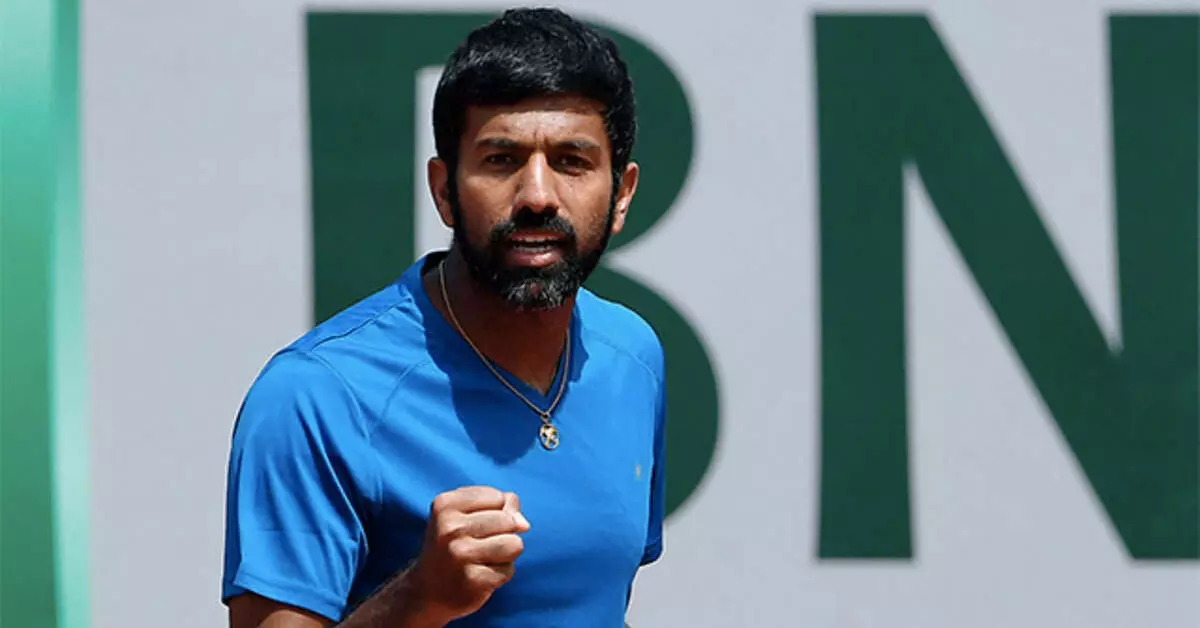Tennis
"It is very hard to be an Indian tennis player" — Rohan Bopanna
In a podcast with Craig Shapiro, Indian tennis ace Rohan Bopanna spills the beans about the real reason behind the slow growth of tennis in India.

If not found romancing the racquet with his silky touch, Indian tennis ace Rohan Bopanna is usually found fawning and fanning over his one true love - a good roast of coffee. Also known as the Coffee Guru of the ATP tour, Rohan Bopanna is not just any regular coffee aficionado but an honestly invested one, replete with his own coffee plantation and his very own blend. However, the veteran Bopanna remains equally concerned about the lack of growth in Indian tennis and doesn't mince the truth - etching out clearly why Indian tennis is stuck in a quagmire with the ropes to rescue it dangling too little in number.
Featuring on The Craig Shapiro Tennis Podcast, the 2017 French Open Mixed Doubles champion, Rohan Bopanna talked about his foray into tennis growing up in Coorg and Bangalore and his father's love for the sport to him becoming a pro doubles player and his plans with his academy - the Rohan Bopanna Tennis Academy and how the immediate future of Indian tennis looks ahead.
Indian tennis very recently sparked into the limelight once again when Karman Kaur Thandi reached the finals of the ITF Italy 13A tournament after packing in some awe-inspiring performances and the 27-year-old Ramkumar Ramanathan also won his maiden ATP Challenger trophy as he went on to win the ATP 80 Challenger in Manama, Bahrain. However, the picture at large for Indian tennis continues to remain stark and after having such a rich legacy paved in stone by the likes of Ramanathan Krishnan, Ramesh Krishnan, and the Amritraj family - Vijay and Anand, who were then succeeded in merit by the duo of Leander Paes and Mahesh Bhupathi - the drop has been noticeable.
Asked by Shapiro if the concerned authorities and the government is doing their bit to nurture this sport and help tennis grow in India which is teeming with potential, Rohan Bopanna clearly mentioned, "To be really honest, it is not really doing that. It is very, very hard to be an Indian tennis player. They have to try and make it on their own out there," Bopanna revealed.
"Unfortunately, there has been no support. Nobody is really focussing on a structure. Nobody is coming up with a great plan of how to help these Indian athletes. Lot of the coaches, I've felt are helping themselves - they aren't helping the kid or the sport to grow which is unfortunate because we have tremendous talent but very, very few coaches are trying to do that," Rohan Bopanna stressed in the podcast, highlighting the existing framework as the main culprit behind the tardy growth of tennis in the country.
"Tennis is a very expensive sport. In our school (the Rohan Bopanna Tennis Academy - The Sports School) we have given almost up to USD 200,000 scholarship in tennis education. It's the first of its kind as it has boarding, lodging, education, and tennis. I feel it has to start from within first before you try and reach out to people to get in and help," Bopanna mentioned.
It isn't just Rohan Bopanna however, even Mahesh Bhupathi, Bopanna mentioned, has done his bit to promote tennis and support young players - Sumit Nagal, being one of the most prominent examples that Bhupathi has helped. For Rohan Bopanna, whose love for tennis brewed first watching people play at The Madapur Club in Coorg - the sport has given him a lot.
Although Bopanna does lament the lack of good fitness instructors and strength and conditioning coaches back in the day for not having honed his style for singles, he is equally thankful for the bounty doubles tennis has blessed him with and continues to do, even at 41 years of age. To see this sport grow in India is not a one-man or a one-day job - but a long, tedious, collective process that Bopanna registers.
"It takes a lot of time and commitment and that is something I'm willing to give back to this sport," Rohan Bopanna mentioned optimistically, looking ahead into the future where tennis will see another revolution in India, guided by veterans like him.
